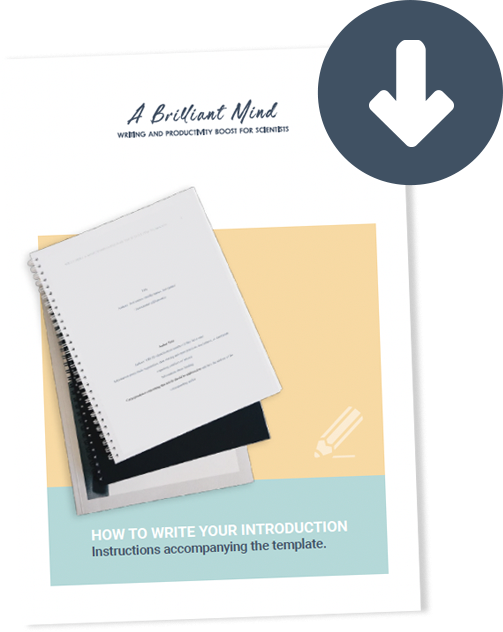Are you struggling to write your paper or thesis? Do you find yourself constantly postponing writing? Or when you do write, you’re inefficient and don’t make as much progress as you should? If so, you’re not alone. Writer’s block is as common in academia as Ph.D. memes on the walls of grad students’ offices. But it’s often a symptom for a deeper issue.
The objective of this post is to help you figure out where your writing block comes from, so you can bring the right remedy. To that aim, I’ve created a freebie: a questionnaire that will help you identify the root cause of your writer’s block and a guide to finding the proper response to each specific kind of block. Are you ready to dive into it?
Lessons from Ernesta
A few weeks back, I found myself behind the wheel of Ernesta. Ernesta is a small elegant white BMW that belongs to Manfred, my partner, the Austrian sun of my life. I am deeply thankful for Ernesta’s service and deeply admire her German precision engineering, but driving her feels like steering a brick. Everything in this car is stiff and requires extra effort to move. Nevertheless, a few weeks ago, my car was in repair, so I had no choice but take Ernesta for a spin.
That day, as I drove, I noticed that Ernesta felt even more sluggish and unresponsive than usual. I had to press the pedals extra hard, and the gears were grinding like old ladies in a church choir. “Gosh! What’s your problem?” I muttered to the car. “I bet Manfred forgot to oil the brakes?” (By now, you’ve probably guessed that I have extensive knowledge of car mechanics).
It wasn’t until I parked in front of the grocery store that I realized my mistake: I had forgotten to release the handbrake. In Ernesta, the handbrake is a stick, which, like everything else in that car, is hard to pull and push. That day, I had loosened Ernesta’s handbrake but not all the way down, which was why the car was so slow.
This experience got me thinking. Driving a car with the handbrake on is like writing a scientific paper with writer’s block. Eventually, the work gets done, but it’s painfully slow, inefficient, and damages the machine in the long run. What if we could identify which “handbrake” prevents us from writing and simply lose it?
What causes your writer’s block?
Like a car that is too slow, writer’s block can stem from various causes. Here are some common culprits:
1. Difficulty to start writing
Starting is often the most challenging part for many scientific writers. Sitting down and focusing on a blank page takes effort. Many scientific writers will pace around for hours before they start writing.
2. Lack of focus
With today’s digital landscape, distractions can be a significant hurdle in writing. Social media notifications, emails, and text messages can easily derail anyone’s writing progress.
3. Fear
Fear of failure or fear of being criticized can all lead to writer’s block. Many scientists anticipate the rejection and criticism they may encounter when they write. The anxiety that these worst-case scenarios generate can prevent them from focusing on their paper.
4. Perfectionism
Scientists who aim for perfection set unrealistic expectations for themselves and their writing, creating pressure and anxiety. As a result, they procrastinate or get stuck in an endless cycle of editing and revising.
5. Uncertainty
Most scientists are insufficiently trained in scientific writing and do not know how to write their papers. Therefore, when they write, they keep wondering whether they are on the right track. These doubts prevent them from concentrating and enjoying the writing process.
6. Lack of interest or confidence in one’s research
Doubting the importance or relevance of one’s research can be a big hindrance when presenting it in a paper. Scientists who feel that their research is uninteresting or contains significant flaws generally lack the motivation to write and struggle to find convincing arguments to “sell it” in their papers.
Does any of these thoughts resonate with you? Are you ready to take the bull by the horns and get rid of your writer’s block? To do this, let’s start by pinpointing your specific problem so we can address it head-on.
The WTF: The Writer’s block Test Factors
To help uncover the root cause of your writer’s block and equip you with practical strategies, I have designed a comprehensive guide specifically tailored for scientists like yourself. This download includes:
- A test that will guide you through a series of questions to pinpoint the specific factors contributing to your writer’s block.
- Strategies and techniques to overcome each specific writer’s block.
By understanding the underlying challenges and having access to practical solutions, you’ll have the tools to break through your writer’s block and reclaim your writing flow. Should we start?
In sum
Your writer’s block affects your research, your career, and the joy you get from your work. By taking the WTF (Writer’s block Test Factors), you can gain valuable insight into the root causes of your writer’s block and discover effective strategies to overcome these difficulties. Then, choose a solution that resonates with you and develop an action plan to integrate it into your writing routine. Are you ready to loosen the handbrake?
How to write your introduction + template
Signup for my newsletter and get your free download!
A good introduction is essential to getting your paper published in a top journal and captivating your readers. It’s essential… and challenging! With this template for writing your introduction, you will find:
- Pre-writing instructions
- Writing instructions
- Explanations on how to use the template
- A checklist to make sure you have included all the important elements for your introduction.
